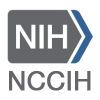Media Advisory: NIH to host spring lecture series on integrative approaches for addressing pain and mental health issues
For Immediate Release:
Wednesday, March 11, 2020

“Novel Approaches at the Intersection of Mental Health and Pain” will be highlighted in the spring 2020 Integrative Medicine Research Lecture Series sponsored by the National Center for Complementary and Integrative Health (NCCIH), part of the National Institutes of Health. The center’s mission is to define, through rigorous scientific investigation, the usefulness and safety of complementary and integrative interventions and their roles in improving health and health care. The three lectures will capture several overlapping NCCIH research interests including nonpharmacologic approaches for managing pain; behavioral strategies to improve adherence to medical treatment of opioid use disorders; mental health; and health promotion, disease prevention, and resilience.
The speakers will discuss the state of the science and present their innovative research on the following:
[Ed. Note: Dr. Gardand's lecture is canceled and rescheduled for May 4, 2021]
Mindfulness-Oriented Recovery Enhancement (MORE): Restructuring Reward Processing in Addiction, Stress, and Pain
Eric Garland, Ph.D., L.C.S.W., The University of Utah
Tuesday, March 24, 2020
11 a.m. to noon EDT, Lipsett Amphitheater (Building 10), NIH campus
About the Presentation:
Some of our most pressing “diseases of despair,” such as addiction, stress, and chronic pain, disrupt the brain’s capacity to experience pleasure and extract meaning from naturally rewarding events and experiences. This is occurring, for example, in the current opioid crisis. Dr. Garland, whose research is partly funded through NIH’s HEAL Initiative, will describe development and testing of an integrative nondrug treatment strategy, Mindfulness-Oriented Recovery Enhancement (MORE). It unites mindfulness, cognitive behavioral therapy, and positive psychology and is rooted in affective neuroscience. MORE is designed to help addictive behavior, stress, and physical and emotional pain.
About the Speaker:
Eric Garland, Ph.D., L.C.S.W., is Distinguished Endowed Chair in Research, associate dean for research, and associate professor at the University of Utah College of Social Work; director of the university’s Center on Mindfulness and Integrative Health Intervention Development; and associate director of integrative medicine at the Huntsman Cancer Institute. Funders of his research include NCCIH, the Department of Defense, and the Patient-Centered Outcomes Research Institute. Dr. Garland is also a licensed psychotherapist.
[Ed. Note: Dr. Heapy's lecture is canceled and rescheduled for June 8, 2021]
Cooperative Pain Education and Self-Management (COPES): A Technology-Assisted Intervention for Pain
Alicia Heapy, Ph.D., Yale School of Medicine and VA Connecticut Healthcare System
Monday, May 11, 2020
10 to 11 a.m. EDT, Lipsett Amphitheater (Building 10), NIH campus
About the Presentation:
Evidence supports behavioral and self-management interventions for people with chronic pain, but the implementation and use of those therapies on a widespread basis have lagged, for many reasons. Technology-based interventions offer a way to address some barriers and improve pain-related outcomes. Dr. Heapy will discuss research she is leading in the Veterans Health Administration (VHA) system on a nondrug pain management intervention, Cooperative Pain Education and Self-Management (COPES). The intervention is a technology-based form of cognitive behavioral therapy using interactive voice response. Chronic pain patients who have difficulty traveling, for example, can access it from home.
About the Speaker:
Alicia Heapy, Ph.D., is associate professor of psychiatry at the Yale School of Medicine and associate director of the Pain Research, Informatics, Multimorbidities, and Education Center at the VA Connecticut Healthcare System. She is Chair of the National Pain Research Working Group, comprising more than 80 VHA, Department of Defense, NIH, and other pain investigators. Her research funders include the VA as well as NCCIH and several other NIH components.
Lighting Up Our Lives: How Light Influences Our Mental and Physical Health
Helen Burgess, Ph.D., University of Michigan
Tuesday, June 30, 2020
11 a.m. to noon EDT, Lipsett Amphitheater (Building 10), NIH campus
About the Presentation:
Natural outdoor light and artificial indoor light can affect our mental and physical health. Dr. Burgess will examine how light reaches the brain and can alter brain centers that regulate circadian (body clock) timing, sleep, and mood. Specific properties of light, such as intensity, wavelength, and timing, will be discussed, as will individual differences in light sensitivity. The speaker will also examine current approaches to morning light treatment and how it can be used to improve health and reduce symptom burden in a variety of clinical disorders such as chronic pain conditions, depression, and posttraumatic stress disorder.
About the Speaker:
Helen Burgess, Ph.D., is professor in the Department of Psychiatry and codirector of the Sleep and Circadian Research Laboratory at the University of Michigan, in Ann Arbor. Her research funders include NCCIH, numerous other NIH components, and the American Sleep Medicine Foundation.
Media: For members of the media interested in covering any lectures, please contact the NCCIH press office at 301-496-7790 or nccihpress@mail.nih.gov.
###
About the National Center for Complementary and Integrative
Health (NCCIH):
NCCIH’s mission is to define, through rigorous scientific
investigation, the usefulness and safety of complementary and
integrative health approaches and their roles in improving
health and health care. For additional information, call
NCCIH’s Clearinghouse toll free at 1-888-644-6226. Follow us
on Twitter, Facebook ,
and YouTube.
About the National Institutes of Health (NIH): NIH, the nation’s medical research agency, includes 27 Institutes and Centers and is a component of the U.S. Department of Health and Human Services. NIH is the primary federal agency conducting and supporting basic, clinical, and translational medical research, and is investigating the causes, treatments, and cures for both common and rare diseases. For more information about NIH and its programs, visit www.nih.gov.